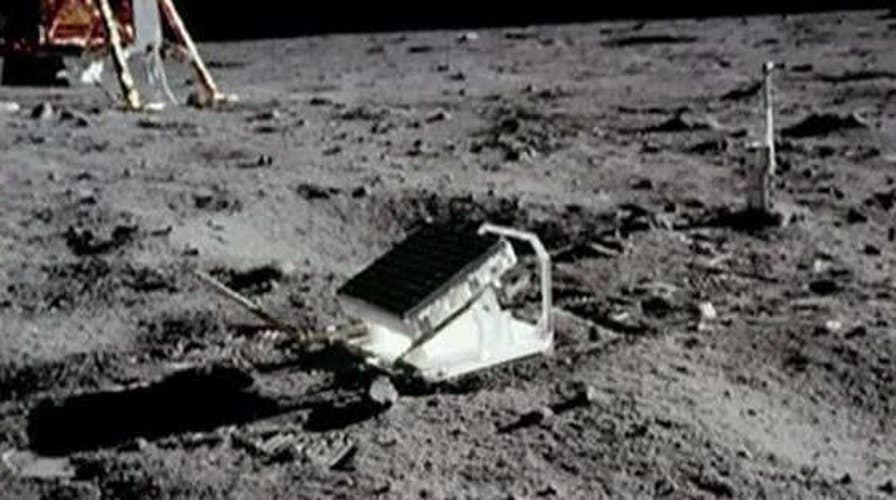Technology from Apollo 11 moon mission still being used 50 years later
A lunar reflector planted on the moon has led to additional breakthroughs including GPS navigation; Jonathan Serrie has the details.
Now this is how you fake a moon mission.

You can tell which one is the real deal by the heavenly body in the background. (NASA/Polaris)
Polaris has teamed up with the U.S. Space and Rocket Center in Huntsville, Ala., to build a functional replica of the Lunar Roving Vehicle [LRV] that was used during the Apollo 15, 16 and 17 missions. Brian Ogle, manager of manufacturing engineering at the Polaris assembly plant in town, said the company was approached by the center last year to help with the project as part of the 50th anniversary celebrations of Apollo 11.
Over 50 Polaris employees volunteered their time to help design and construct the vehicle with input from the project manager of the original LRV, Sonny Morea.

(Polaris)
The team used the authentic half-century-old molds from the archives for the fenders, and the steel chassis was designed to the exact dimensions of the original blueprints and equipped with four-wheel-steering. Meanwhile, the running gear is comprised of components from the extensive Polaris parts bin, including the Ranger EV's electric motor, a lithium-ion battery pack normally found in a GEM electric vehicle, the steering rack from a Slingshot three-wheeler and the lights off of an Indian motorcycle.

(Polaris)
As with the original, the vehicle is controlled by a joystick instead of a steering wheel. It’s connected to a skid-steer controller and the grip is a perfect recreation that was computer-modeled and 3D printed from the LRV's plans.

Cernan at the helm of the LRV. (NASA)
The top speed has been governed to 12 mph for now, but Ogle said it's capable of going much faster than that. The 1970s LRV could propel itself to a maximum velocity of 8 mph, but Apollo 17 commander Capt. Eugene Cernan, who was the last man on the moon, managed to hit 11.2 mph on a downhill stretch, which still stands as the lunar land speed record. Cernan famously used duct tape and maps to repair a fender after busting one as he was unloading the vehicle from the Lunar Excursion Module.

Cernan's extraterrestrial body work protected vital instruments from lunar dust. (NASA)
But while the lunar record is safe for a few more years, Polaris is planning to take the replica racing. After making a tour of public events to promote science and engineering, it will run a couple of laps of the Talladega Superspeedway during the NASCAR race weekend in October, when they take off the restrictor and see what it can do.
Want to know what it’s like to drive on the moon? Prior to his death in 2017 we spoke with Eugene Cernan about the ultimate off-road experience:
OUT OF THIS WORLD DRIVER EUGENE CERNAN RECOUNTS HIS RIDE ON THE MOON
